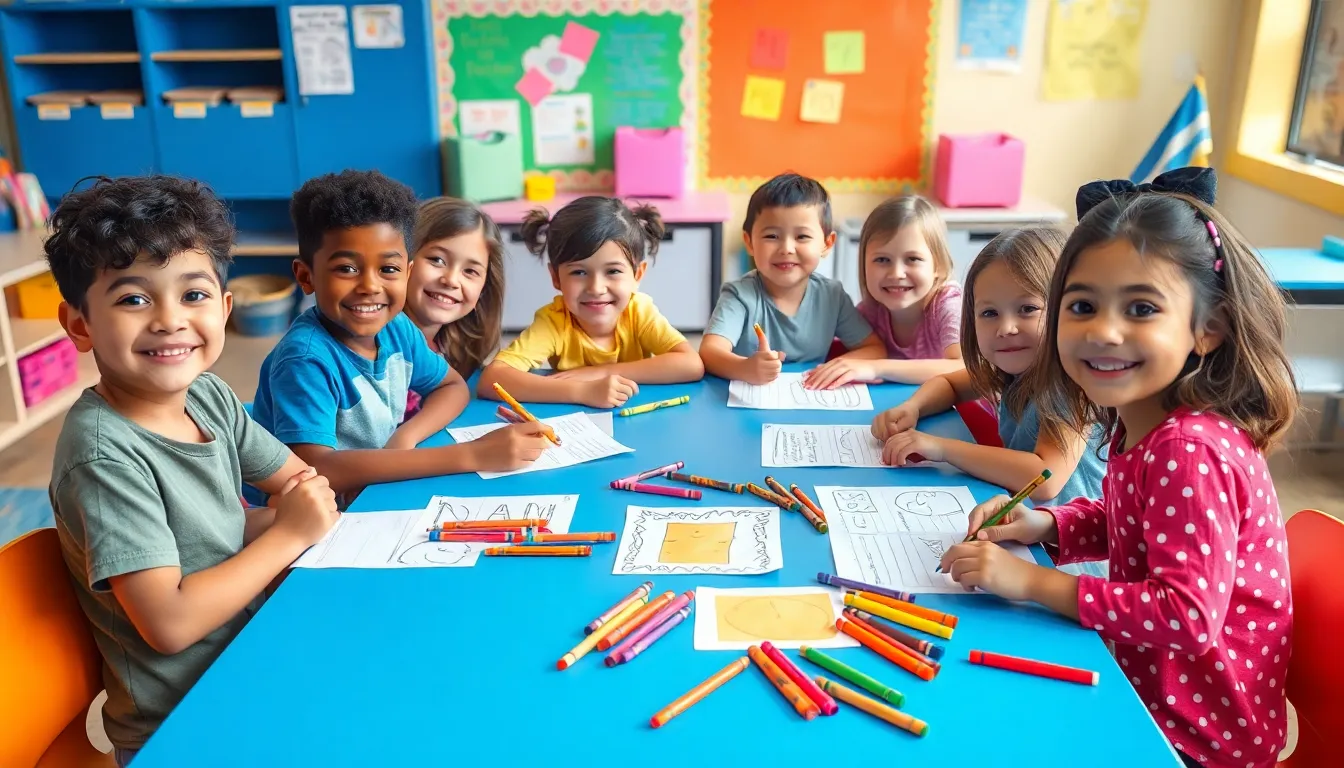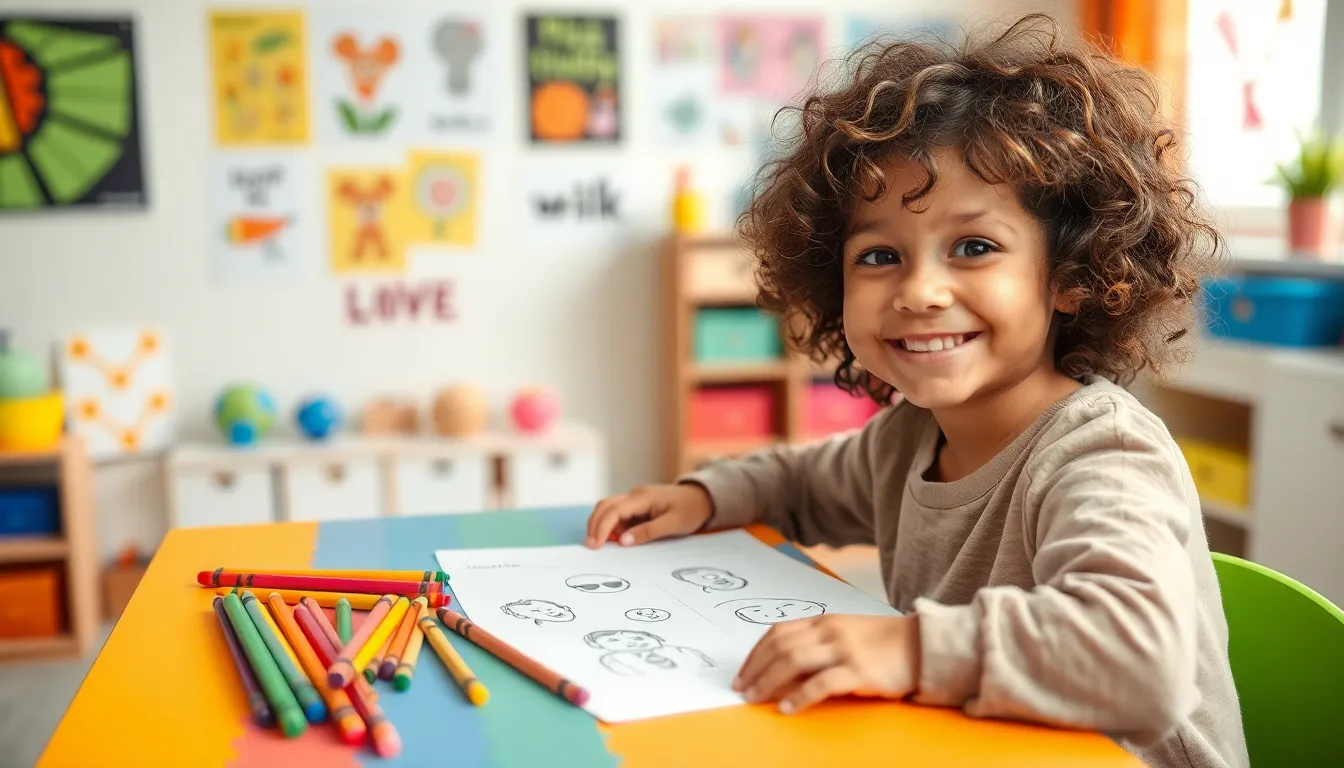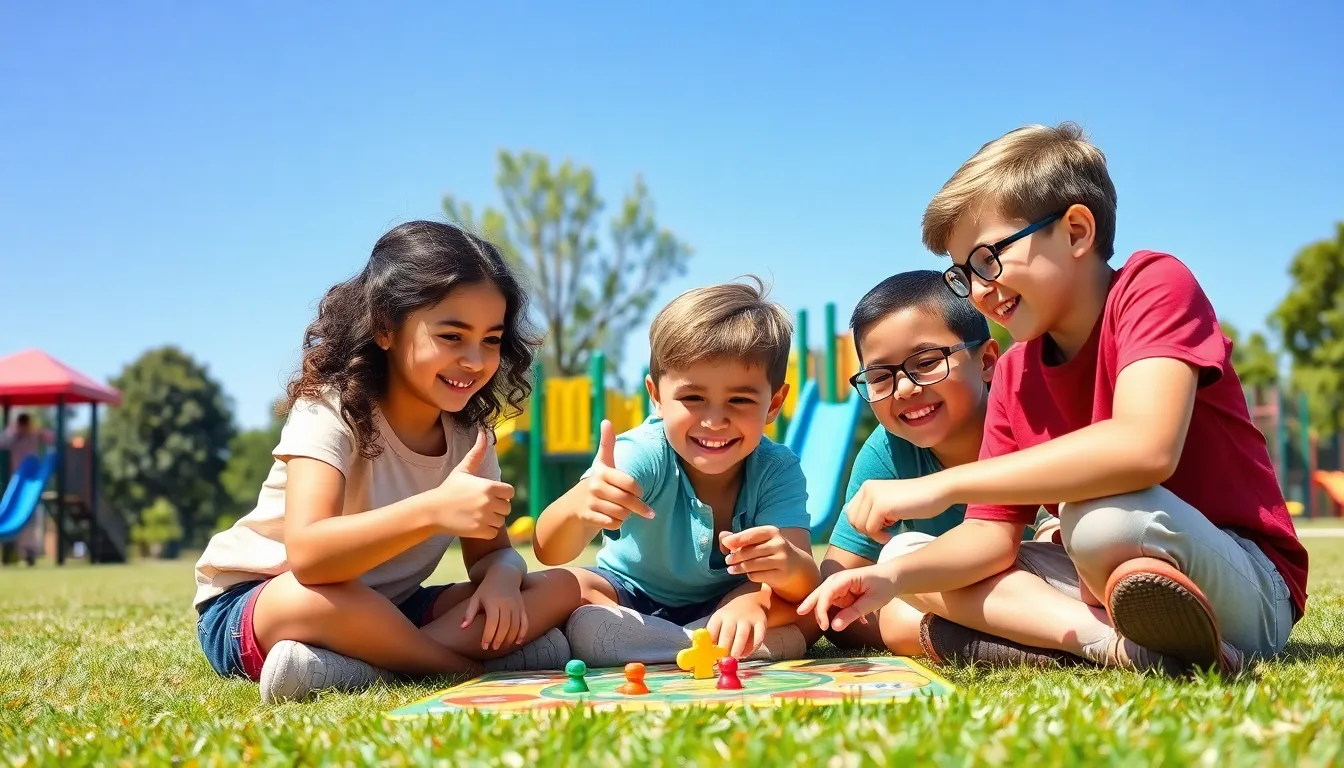Navigating the world of emotions can feel like trying to assemble IKEA furniture—confusing and a bit overwhelming. Kids today face a whirlwind of feelings, and sometimes they need a little help untangling those knots. That’s where mental health worksheets come in, offering a fun and engaging way for children to explore their thoughts and feelings.
Table of Contents
ToggleImportance Of Mental Health Worksheets For Kids
Mental health worksheets serve as vital resources for children grappling with emotional challenges. Engaging with these worksheets encourages self-exploration, allowing kids to articulate their feelings clearly. Understanding emotions becomes easier through structured activities that promote insight and resilience.
Worksheets also enhance emotional literacy, helping children identify and label feelings effectively. With the right guidance, kids learn coping strategies, which can lead to improved emotional regulation. Activities within these worksheets often incorporate art and creativity, making them enjoyable and accessible.
Parents and educators find these resources beneficial for facilitating conversations about mental health. Using worksheets, caregivers can introduce topics like anxiety or sadness in a kid-friendly manner. This dialogue fosters a safe environment where children feel comfortable sharing their thoughts.
Regular engagement with mental health worksheets cultivates a habit of reflection. By revisiting past activities, children can track their emotional growth and identify patterns over time. Such practices instill a sense of accountability and self-awareness, essential components of mental well-being.
Research supports the effectiveness of early intervention strategies, indicating that children who learn to manage their emotions often exhibit higher academic performance and social skills. Implementing these worksheets in various settings promotes a holistic approach to mental health education. As children encounter life’s challenges, mental health worksheets equip them with tools to navigate their feelings competently.
Types Of Mental Health Worksheets

Various types of mental health worksheets exist, providing children with specific tools to navigate their emotions effectively.
Emotion Regulation Worksheets
Emotion regulation worksheets help children identify and manage their feelings. Through structured activities, kids learn to recognize emotions like anger, sadness, and joy. Drawing feelings or using color-coded charts enhances understanding. Completing these worksheets can foster healthy coping strategies. For instance, kids might practice breathing exercises or journal about their emotions. Regular use of these resources encourages emotional processing, leading to better expression of feelings. Parents and educators support this development by integrating these worksheets into daily routines. Positive reinforcement reinforces emotional literacy, promoting resilience in children.
Coping Skills Worksheets
Coping skills worksheets focus on teaching children effective ways to handle stress. These worksheets often include activities that explore various coping strategies like mindfulness, deep breathing, and physical activities. Identifying personal triggers helps kids understand their responses to stress. Engaging in role-playing or scenario-based exercises prepares children for real-life challenges. Additionally, creating lists of favorite activities can provide quick references during tough times. Utilizing these worksheets enhances emotional resilience and empowers children to develop individualized coping strategies. Making these tools accessible aids children in handling life’s ups and downs.
Benefits Of Using Mental Health Worksheets
Mental health worksheets offer numerous advantages for children. These tools effectively support emotional growth and development.
Enhancing Emotional Awareness
Emotional awareness improves significantly with mental health worksheets. Activities prompt children to identify their feelings through drawing and writing. They learn to recognize emotions by using color-coded charts, which aids understanding. Engaging in self-reflection fosters deeper insights into their emotional states. Children gain clarity about how specific situations make them feel, allowing them to articulate these emotions more accurately. Worksheets also promote discussion, enabling kids to share their experiences with trusted adults. Such conversations strengthen the parent-child connection and create a supportive environment for emotional expression.
Promoting Healthy Coping Strategies
Healthy coping strategies are essential for managing stress. Mental health worksheets provide structured activities that teach effective responses to challenging situations. Mindfulness exercises included in these worksheets encourage relaxation and stress management techniques. Role-playing scenarios prepare children for real-life situations, equipping them with tools to navigate difficulties. Engaging in creative tasks allows kids to develop personalized coping methods, enhancing emotional resilience. Regular practice with these worksheets helps children internalize coping strategies, making them more accessible when needed. Ultimately, these practices lead to improved emotional regulation, contributing positively to their overall mental well-being.
How To Implement Worksheets At Home
To effectively use mental health worksheets at home, start by establishing a dedicated time for these activities. Setting aside specific moments creates a routine that children can rely on. Engaging in these worksheets together encourages open dialogue about feelings and emotions.
Select worksheets that align with the child’s current emotional needs. Choose emotion regulation or coping skills worksheets depending on whether they need help identifying feelings or managing stress. Mix various activities, such as drawing and role-playing, to maintain interest and engagement.
Encouragement plays a crucial role in this process. Remind children that it’s okay to express themselves freely. Praise their efforts, regardless of the outcome, to foster a supportive environment where they feel safe to share emotions.
Consider using simple tools alongside the worksheets. Color-coded charts and drawing materials enhance the experience, making it more interactive and enjoyable. Incorporating these tools also aids in deeper understanding of emotions.
Track progress over time by revisiting completed worksheets. Reflecting on earlier activities allows children to see their growth and development. Discussions about changes in feelings or coping strategies encourage continued self-exploration.
Incorporate conversations around the worksheets into daily life. Instead of saving discussions for designated times, integrate them into routine moments, like during meals or car rides. This approach helps normalize these conversations and further builds emotional literacy.
Family participation boosts the impact of mental health worksheets. Parents and siblings can join in, creating a collaborative effort that strengthens family bonds. Sharing experiences enhances understanding and empathy within the household.
Resources For Finding Mental Health Worksheets
Numerous online platforms specialize in mental health worksheets for kids, offering a wide variety of resources tailored to diverse age groups and needs. Websites like Education.com provide numerous worksheets focused on emotions and coping strategies, making them accessible to parents and educators. Additionally, ChildMind.org features an array of resources designed to aid children in understanding their feelings and building resilience.
Teachers Pay Teachers offers a marketplace where educators share their own worksheets, often featuring unique activities that resonate with students. The American Psychological Association website also boasts an excellent selection of tools and guides aimed at promoting children’s mental health literacy.
Books dedicated to children’s mental health frequently include worksheets, making them valuable resources for parents and professionals alike. Authors like Dr. John Teasdale offer structured materials that assist children in processing emotions effectively.
Non-profit organizations such as The National Alliance on Mental Illness (NAMI) provide free resources, including worksheets, to help develop emotional intelligence and coping skills in children. Local libraries may stock mental health books specifically for children, often containing worksheets as part of the learning activities.
Parents should also consider joining support groups or community forums focused on children’s mental health. These groups often share resources and worksheets extensively, broadening access to valuable tools.
Check educational apps that focus on emotional learning; many include interactive worksheets that engage children through technology. Exploring multiple sources enriches the understanding of mental health topics, ultimately fostering a supportive environment for children’s emotional growth.
Mental health worksheets for kids serve as essential tools in nurturing emotional well-being. By encouraging self-exploration and enhancing emotional literacy, these resources empower children to articulate their feelings and develop coping strategies. Regular engagement with these worksheets not only fosters reflection and self-awareness but also strengthens the bond between parents and children through open dialogue.
As children learn to navigate their emotions, they gain valuable skills that support their overall mental health. With a variety of worksheets available, parents and educators can easily find resources tailored to their child’s needs, ensuring a more supportive and understanding environment. Embracing these tools can significantly impact a child’s ability to manage life’s challenges effectively.




